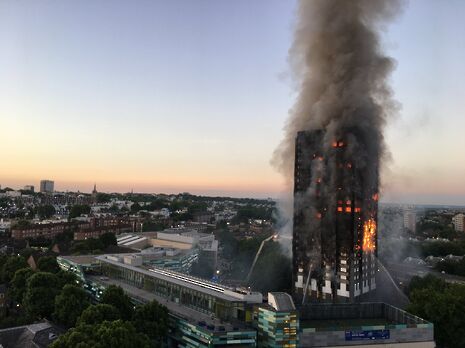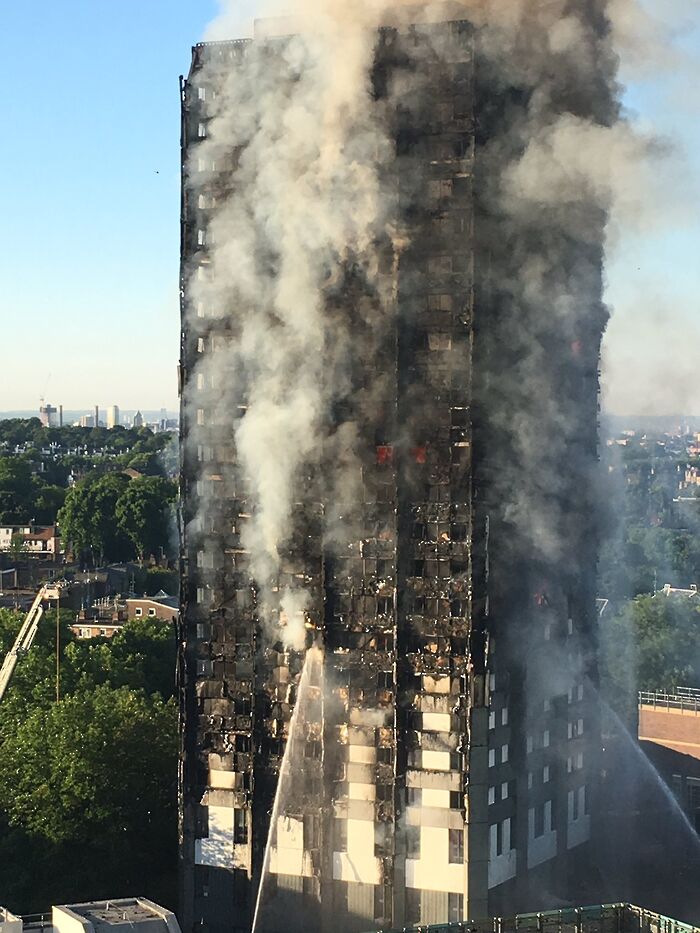New Year Honours, same old problems
The list is riddled with discrimination, argues Harry Robertson, noting the absence of the responders to the Grenfell Tower tragedy

Seven months ago this week, more than 70 fire engines carrying over 250 firefighters rushed to struggle with a devastating fire that had engulfed Grenfell Tower, a block of public-housing flats in North Kensington. Over 20 ambulances carried the injured and dying to hospital. These well-trained and hard-working first responders together ensured that at least 220 people escaped, but they could not stop more than 70 from dying.
As the firefighters drove back to their stations, having battled the fire for over 60 hours, residents of the area lined the streets and displayed their gratitude with sombre applause. There had been similar, widespread appreciation for the paramedics and police officers who responded to the suicide attacks in Manchester over eight months ago.
The Grenfell Tower fire was an emblem of the misplaced priorities of those that hold power in Britain
According to the government’s website, the New Year Honours list “recognises the achievements and service of extraordinary people across the United Kingdom.” In the most recent list, published in the last days of 2017, Theresa May’s government – who visited the site of the Grenfell fire but refused to meet the residents who’d had their lives destroyed by it – has failed to recognise a single person involved in helping deal with that tragedy or the Manchester bombing.
Who, then, are those that contributed more significantly to the betterment of British public life, and have been honoured? Among the most notable is Graham Brady, chair of the 1922 Committee of Conservative backbench MPs, who received a knighthood, and who also happens to be the official conduit through which a no-confidence vote in the Prime Minister must go. Another knighthood recipient is Tory MP Christopher Chope. In 2013, Chope was a key player in an attempt to reintroduce the death penalty and national service, and to privatise the BBC.
Banker Susan Rice, who was managing director of Lloyds Banking Group Scotland when it paid millions in fines for fixing the Libor rate and mis-selling products, receives a damehood. Serial failure Nick Clegg, who oversaw the destruction of the Lib Dems in 2015, campaigned unsuccessfully to keep Britain in the EU in 2016, and lost his seat in Sheffield Hallam in 2017, also received a knighthood.
The government have claimed that it was too early to organise the recognition of those who toiled in the wake of the Grenfell fire and Manchester bombing. This excuse borders on the insulting. It is a damning indication of where the priorities of the so-called ‘leaders’ in society lie that they feel content to shower failed bankers and politicians with medals, but in over seven months cannot organise for honours to be given to those who truly deserve recognition.
The New Year Honours list recognised many charity, social and community workers. In typical feudal British fashion, however, there are strict levels of rank in the system. This year, like every year, those who received the most prestigious awards – damehoods, knighthoods, and membership of the Order of the Companion of Honour – were overwhelmingly drawn from politics, civil service, the media and sport. All of these people are already very well remunerated, and many are famous. Those who have tirelessly served their local community in places such as schools, hospitals, and charities typically receive awards of lower rank, such as CBEs and MBEs.
Who’s to say that their contributions to society are any less meaningful than those who are given higher honours, which is what the system suggests? Indeed, isn’t the contribution of, say, David Canning MBE, a teacher from Northern Ireland who founded educational projects which seek to transcend religious divides for more than 23,000 pupils, greater than that of Sir Christopher Chope, who has actively sought to ban sex discrimination tribunals?
If the honours system must exist, it needs a radical overhaul. It could, perhaps, equalise the honours given, instead of belittling the crucial work of many in the local sphere through the archaic way it ranks honours. It definitely should work much, much harder to recognise those who have made meaningful contributions to society, and stop the sycophantic embarrassment of handing out knighthoods to chums of the government, as in recent decades.
The Grenfell Tower fire was an emblem of the misplaced priorities of those who hold power in Britain. The New Year Honour’s list, sadly, was another
 News / CUP announces funding scheme for under-represented academics19 December 2025
News / CUP announces funding scheme for under-represented academics19 December 2025 News / SU reluctantly registers controversial women’s soc18 December 2025
News / SU reluctantly registers controversial women’s soc18 December 2025 News / Cambridge welcomes UK rejoining the Erasmus scheme20 December 2025
News / Cambridge welcomes UK rejoining the Erasmus scheme20 December 2025 Features / Should I stay or should I go? Cambridge students and alumni reflect on how their memories stay with them15 December 2025
Features / Should I stay or should I go? Cambridge students and alumni reflect on how their memories stay with them15 December 2025 Film & TV / Timothée Chalamet and the era-fication of film marketing21 December 2025
Film & TV / Timothée Chalamet and the era-fication of film marketing21 December 2025










